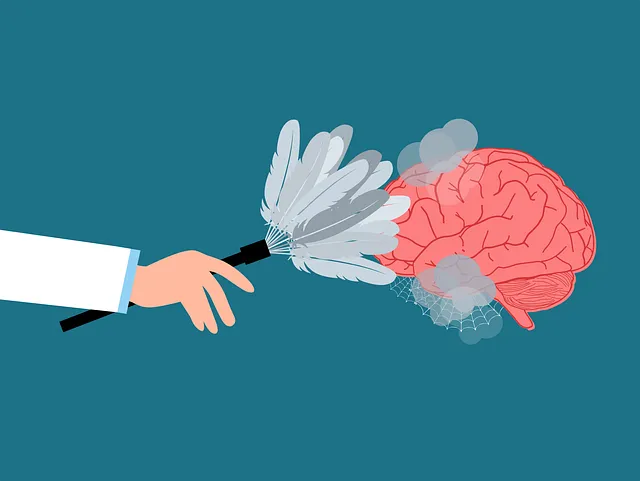The text highlights the detrimental impact of stigma on mental health, particularly hindering access to care via platforms like Kaiser Superior. It introduces a multi-faceted approach involving increased service accessibility, educational initiatives (programs, workshops, podcasts), and sharing recovery stories for effective destigmatization. Kaiser Superior stands out by offering tailored therapy, support groups, and crisis guidance within primary care, empowering patients with coping strategies and self-care practices to normalize support seeking, thus improving mental health outcomes. Learn how to leverage Kaiser Superior's resources for navigating your mental health journey seamlessly through accessible services and education.
Mental illness stigma remains a significant barrier to accessing crucial mental healthcare. This article explores the far-reaching impact of this societal shame and presents effective strategies to reduce it, including a focus on Kaiser Superior’s role in fostering inclusivity.
We delve into understanding stigma, its roots, and how it hinders treatment-seeking behaviors. Then, we uncover comprehensive approaches to counteract these effects. Discover how Kaiser Superior is leading the way in providing accessible mental health services and breaking down barriers through innovative initiatives.
- Understanding Stigma and Its Impact on Mental Health Care Access
- Strategies to Reduce Stigma: A Comprehensive Approach
- Kaiser Superior's Role in Overcoming Barriers to Mental Health Services
Understanding Stigma and Its Impact on Mental Health Care Access

Stigma surrounding mental illness is a significant barrier to individuals seeking essential mental health care services. It often manifests as negative attitudes and stereotypes, leading many to feel ashamed or fear judgment when considering support. This internalized stigma can prevent people from reaching out for help, even when facing severe symptoms. As a result, they may struggle in silence, impacting their overall well-being and ability to access appropriate treatment.
Understanding the far-reaching consequences of stigma is crucial. It not only hinders a person’s journey towards recovery but also contributes to the broader issue of underutilization of mental health services. For instance, those facing burnout or trauma might avoid necessary support due to societal perceptions. Kaiser Superior recognizes this challenge and emphasizes the importance of destigmatization through various initiatives. By promoting public awareness campaigns and offering accessible resources, they aim to encourage individuals to prioritize their mental health and effectively navigate available services, such as trauma support and burnout prevention strategies tailored for healthcare providers.
Strategies to Reduce Stigma: A Comprehensive Approach

Stigma reduction efforts for mental illness require a comprehensive approach that tackles misconceptions head-on. One effective strategy is to increase access to mental health services through platforms like Kaiser Superior, ensuring individuals can seek support without barriers. This includes providing clear information about available resources and streamlining the process of connecting with professionals. Educational initiatives play a crucial role in this regard; offering programs, workshops, and even Mental Wellness Podcast Series Production can help demystify mental illness and promote understanding.
Additionally, involving recovered individuals in sharing their stories can be incredibly powerful. These narratives not only provide Trauma Support Services but also showcase the possibility of recovery, thereby reducing fear and judgment. By combining accessible services with educational outreach, communities can foster an environment where those struggling with mental health issues feel welcomed and supported, ultimately contributing to broader Mental Illness Stigma Reduction Efforts.
Kaiser Superior's Role in Overcoming Barriers to Mental Health Services

Kaiser Superior plays a pivotal role in overcoming barriers to mental health services by providing comprehensive and accessible care. They offer a wide range of resources tailored to diverse needs, including individual therapy, group support sessions, and crisis intervention guidance for both adults and adolescents. By integrating these services into primary care settings, Kaiser Superior ensures that individuals facing anxiety relief challenges can receive timely assistance without the stigma often associated with mental health care.
Through their commitment to fostering an inclusive environment, Kaiser Superior encourages open conversations about mental wellness. They promote mind over matter principles by educating patients on coping strategies and self-care practices, empowering them to take charge of their mental well-being. This holistic approach not only improves access to mental health services but also fosters a culture where seeking support is normalized, leading to better outcomes for individuals navigating various mental health challenges.
Stigma reduction is a key strategy in improving access to mental health care, especially through innovative initiatives like those employed by Kaiser Superior. By implementing comprehensive approaches and raising awareness, we can create an environment where individuals feel empowered to seek the support they need. Understanding the impact of stigma and utilizing effective strategies ensures that mental health services are accessible to all, fostering a healthier and more supportive society. Through collaborative efforts, we can break down barriers and encourage open conversations around mental wellness, ultimately enhancing the overall well-being of communities.






